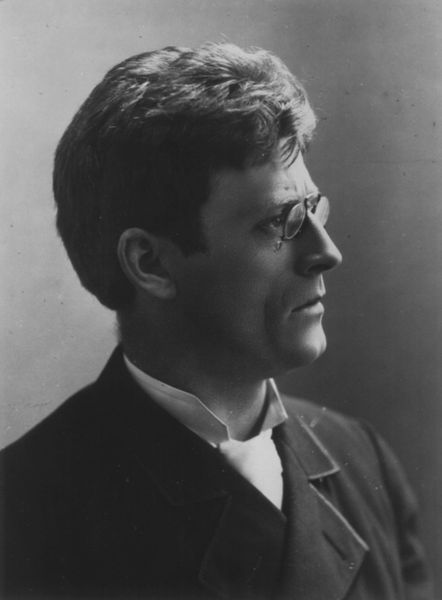I thought this morning about the turns life can take, movements that confuse me as I want it to be linear.
I liked to write in the early 90’ties. But I replaced it by painting landscapes and was bit by it for more than a decade. This passion became impossible and I returned to writing, still longing for the same passion I felt for painting. Trying, wondering, giving up.
One of the things I ponder about is a fear of loosing possibilities to obtain some sort of fulfilment. If my life isn’t linear, how can I then get to the end of my possibilities? In other words: If I don’t choose and continue writing, or painting, or .. what…. how can I then develop?
In a discussion I was told that everything I have done has not been for nothing, it made me who I am, not who I could have been. There is no need to give up and let life pass. But I don’t always know how to continue.
Today.
Some weeks ago I heard a radioprogram about the music of Portugal, Fado. I got interested and googled it. This brought me to Swedish blogs about music and literature. Today I ended up on Bodil Zalesky’s blog where I found a post about the writer/poet Rainer Maria Rilke. I got interested because I know Rilke from my painting time – he wrote about the painters colony in Worpswede. She started a post with the wonderful sentences: “Kanske har jag aldrig läst någon Rilke-dikt här under trädet. Vilken ska då bli den första?”, and then she choose the following poem:
Wunderliches Wort
Wunderliches Wort: die Zeit vertreiben!
Sie zu halten, wäre das Problem.
Denn, wen ängstigts nicht: wo ist ein Bleiben,
wo ein endlich Sein in alledem? –
Sieh, der Tag verlangsamt sich, entgegen
jenem Raum, der ihn nach Abend nimmt:
Aufstehn wurde Stehn, und Stehn wird Legen,
und das willig Liegende verschwimmt –
Berge ruhn, von Sternen überprächtigt; –
aber auch in ihnen flimmert Zeit.
Ach, in meinem wilden Herzen nächtigt
obdachlos die Unvergänglichkeit.
Rainer Maria Rilke
I had thought about the feeling of giving up that comes over me sometimes, but one resigns to do silly things if you want to make time pass. Indeed, I know actually, as Rilke says: Wunderliches wort: die Zeit vertreiben! Sie zu halten, wäre das Problem.
On the right side of Bodil’s blog is a place for “Senaste kommentarer”, and at the moment the latest is made by Christopher Rådlund. And I know him too from my painting time. This morning I noticed to my surprise that I couldn’t remember some names of painters I liked or corresponded with, but I recognized Chrishopher’s as soon as I saw it. He was my “secret tip” if people asked me for my favourite painters. It is always a remarkable feeling I get when my two worlds, writing and painting, meet.
In the post Christopher reacts on a discussion about artists and political opinions that can often be connected to them. This is something that is often being discussed, and these days also in connection with the celebrations of Knut Hamsun’s 150th birthday. One of the few books that made an impression on me – few, because I only read a few – was the first chapters of Knut Hamsun’s “Den Siste Glæde“. But as we know Knut Hamsun has connected himself actively to the Nazis during the 40ties and even 50ties. So did another favourite of mine, the writer of -I would almost say “the other book I once read” –Filip de Pillecijn. I am never sure how to deal with these connections, as I don’t think that artists and their works have to be thoroughly connected: a wonderful painting doesn’t have to be made by a wonderful person.
It all meant that while I was already thinking about my seemingly non-linear life, I went back and forth between writing and painting while I read a post or two. And as was mentioned to me during the discussion, because of my background I could get the most out of it. I better keep going.
Du musst das Leben nicht verstehen
Du musst das Leben nicht verstehen,
dann wird es werden wie ein Fest.
Und lass dir jeden Tag geschehen
so wie ein Kind im Weitergehen von jedem Wehen
sich viele Blüten schenken lässt.
Sie aufzusammeln und zu sparen,
das kommt dem Kind nicht in den Sinn.
Es löst sie leise aus den Haaren,
drin sie so gern gefangen waren,
und hält den lieben jungen Jahren
nach neuen seine Hände hin.
Rainer Maria Rilke


May I send you a wonderful and in a way harrowing poem by Bertil Malmberg about Knut Hamsun? Yes?
Han travade genom vårarna,
riden av ingen,
riden allenast
av egenviljan,
blott styrd, blott pressad
av godtyckets nakna,
smidiga lår.
En hingst ur äventyren…
Och manen den blåste för vinden.
Nu ser vi honom
på fjället, uråldrig,
skymtande i stallet,
ännu med splittrade hoven
retligt stampande
- ett uråldrigt hästspöke,
ensamhetens patetiske krubbitare.
Absolutely. Det er dejligt at få kommentar i form af et godt digt.
Jeg har tygget på det i dag og det ledte til mange tanker.
Digtet er meget indholdsrig.
Jeg vil gerne holde det ved hånden, og det er det nu.
Så mange tak for dit kommentar!